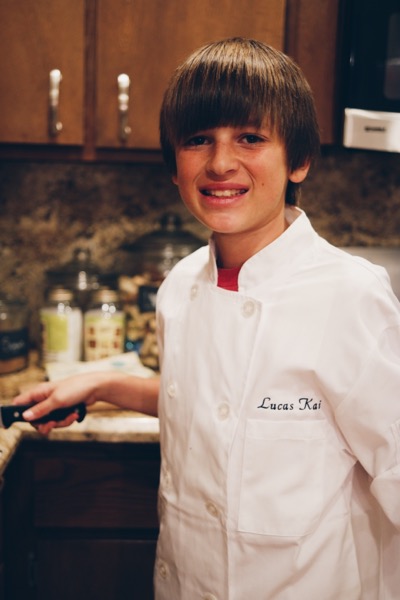As a side note, in July of 2013, the Ministry of Health had reports of over 54,000 cases and almost 800 recorded deaths from measles in Africa.
But, as always, there is the flip side..
The right to protect your own child
One of the main debates I hear from mother’s who have chosen not to vaccinate is that they are doing what I am saying – They have made a choice that they have deemed what is best for their children. And, I understand that… to a point.
I have a good friend, Marcy, whose child had a serious, physical, reaction to his vaccinations. Because of this, they opted not to continue to vaccinate their second child when they saw he had the same reaction after his initial vaccinations. This I get. I would never fault another mother for making a decision that protects her children.
“I believe in vaccinating and I am thrilled that advances in medical care have saved millions of lives through vaccination. When my first son was born, I read the research and still thought it was best to follow the advice of my Pediatrician and vaccinate on schedule. When he received his first shots in the hospital, he had a mild fever and vomited. His next round at 2 months of age came with a raging fever, vomiting, and 2 days of appetite loss. The Dr. assured me that this was normal and occurred in 10% of children. He was sensitive, but he would get over it and small price to pay for the protection of the vaccines. This continued with additional side effects including fever, vomiting, diarrhea, appetite loss, inability to sleep, and muscle paralysis. All "normal" and subsided in a few days. By the time he was three, we were at the end of our rope. He was sick ALL THE TIME. We eventually sought the advice of a nutritionist that tested him and determined that his system had been so ravaged by the 25 vaccines he had to date that his intestines were actually perforated and leaking into his body. We revamped his diet, began a regimen of natural supplements to heal his gut and stopped the vaccines and antibiotics. Miraculously, within 2 weeks, he stopped getting sick, stopped having fevers, began to sleep through the night and his symptoms of Autism* (diagnosed at 18months) began getting easier to manage. *For the record, I do not believe vaccinations caused my son's Autism. I do believe, however, that the illness and side effects from the vaccinations exacerbated his symptoms and affected his ability to cope with sensory input.”
But if every parent that chose not to vaccinate had Marcy’s story, I also wouldn’t be writing this post.
Where Marcy and I may not agree is on the argument of the “heard effect.” Marcy argues that, “That would be nice, but I would never expect another parent to make a decision on their child's vaccines based on the special needs of my kid. I am responsible for that.”
While I understand, and totally give props for accepting her responsibility, I disagree with the statement.
Marcy is part of my community, part of my system, and since we’ve been friends for almost 20 years now, she’s practically family. And it is my responsibility to help protect her and her family. If her house burned down and she needed a place to stay, I would let them stay in my little townhome. I would temporarily make my kids uncomfortable to help her and her family out. Because I can do something for her that she can’t do for herself.
That’s community. That’s what we do for each other. We help and protect each other when needed, even if it temporarily makes our lives harder.
No kid should have measles. No kid should have a reaction to vaccinations.
No parent should have to worry about either of these.
Marcy’s main point is that there needs to be more research done for a diagnostic test to determine if a child’s system is strong enough to handle vaccinations. A way to tell if your kid is going to be that 10% that has an adverse reaction. And I wholeheartedly agree with her. I advocate for diagnostic tests for Kawasaki Disease so that no parent needs to sit there and wonder if their child has a life threatening illness, and I agree that we need to try to take the “what if” out of vaccinations.
So let’s change the conversation.
Let’s change the conversation from debate on pro-vaccinations or anti-vaccinations to what WE, as a society, can do to make sure vaccinations are safe for all they are given to. Let’s tackle the issue of making sure that everyone is able to safely vaccinate. Let’s demand a scientifically proven and tested system to work with kids that may not be able to get all the vaccinations at one time – if at all. Let’s hold us all accountable for our actions and our choices when it affects our society as a whole.
If we change the conversation and work together to solve the issue at hand, then we can all relax and let vaccinations do what they are intended to do – keep us all safe.









